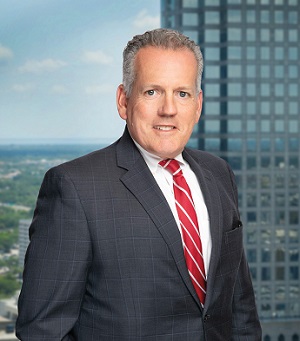Gone are the days when avoiding political discourse was as easy as switching the channel on a television, avoiding political rallies or not inviting one particular relative to Thanksgiving dinner. As our society becomes more polarized regarding political, cultural and social issues, we are constantly exposed to the unsolicited opinions and assertions of others, including our family, friends and coworkers. Workplace boundaries and social norms which once held such divisive discourse at bay suddenly are eroding if not collapsing altogether. Employers are often scrambling to find an effective way of keeping such discussions and opinions out of the workplace as they are unproductive and can lead to claims of unfair employment practices.
Making matters more complicated, employees often have misconceptions regarding the scope of an employee’s right to speech and the limits of an employer’s right to restrict same. For instance, many employees believe that the First Amendment protects all forms of speech and prohibits all employers from restricting their speech, including private sector employers – when in reality, the First Amendment only prohibits government action. It does not prohibit the restrictions of speech in the private-sector workplace.
Many employees also believe that the First Amendment protects all types of speech and, so long as an employee invokes First Amendment protection, the employee may speak about whatever he / she pleases.
Employee Free Speech in the Workplace
However, there are several types of speech which are not protected under the First Amendment, including the following:
- True threats
- Fighting words
- Calls to illegal action
- Obscenity
- Child pornography
- Defamation
- Perjury
- Plagiarism
- Solicitation to commit a crime
- Blackmail
Employees have no right to engage in the foregoing types of speech, and employers are likewise unprotected if they participate in such speech. Accordingly, employers should ensure that they are well advised regarding the boundaries of employee speech, including the right to engage in speech relating to protected concerted activities under applicable labor law. Moreover, employers must remember that the rights of employees to speak freely in the workplace can differ drastically based on whether the employee works for a private or a public employer.
Private-Sector Employers:
As exemplified in a controversial case discussed further below, the conundrum which private employers face is that, even though an employer has broad discretion to limit employee speech in working areas during working time, an employer may not be able to discipline an employee who posts unpopular, offensive and / or profane rants on social media if the employee ties the speech to protected concerted activity. Given such circumstances, employers often are unsure where they can draw the line. A recent, well publicized example involved the Dallas Cowboys because its owner told players that they may no longer take a knee in protest of political and / or social issues during the playing of the National Anthem. Even though the owner did not threaten termination, he nonetheless made it clear he would take the adverse action of benching players who kneel during the National Anthem.

(Jeremiah Jhass/2019 Dallas Cowboys)
The Cowboys’ actions prompted Local 100 of the United Labor Unions to file an unfair labor practice charge with the National Labor Relations Board (the “Board”), claiming the Cowboys’ threat to bench players chilled the players’ rights to engage in protected concerted activity. Success for the union would have required a showing that the players who kneeled did so in protest of the terms and conditions of their employment rather than in response to the ongoing political, cultural and social issues relating to the treatment of African Americans by law enforcement. Ultimately, Local 100 withdrew the charge but the controversy continues.
The foregoing begs the question, what are the limits to employees exercising their right to engage in concerted activity by way of controversial, unpopular and / or even profane speech? In Nat’l Labor Relations Bd. v. Pier Sixty, LLC, 855 F.3d 115 (2d Cir. 2017), as amended (May 9, 2017), the Second Circuit set these limits quite broadly providing employees substantial leeway to engage in such speech. In Pier Sixty, an employee on break posted a profanity laced rant on social media regarding his boss and his boss’ mother, including calling his boss a “nasty mother****er” and insulting his family. Because the employee inserted the words “Vote YES for the UNION” in the same post and because the evidence showed that the employer tolerated the use of profanity in the workplace, the Second Circuit found that the employee’s termination for making the post constituted an unfair labor practice. While Pier Sixty does not support the conclusion that an employee immediately may take to social media to berate a boss or boss’ family or disrupt the workplace with such speech, it does show the broad deference which courts give the Board in protecting an employee’s right to engage in concerted activity.
Under the Trump Administration, the Board appears to be shifting to a more conservative view regarding concerted activity. Recently, in Alstate Maintenance and Trevor Greenidge, Case 29-CA-117101 (Jan. 11, 2019), the Board took a narrower approach to the definition of concerted activity. Greenidge, who was employed as an airport skycap, complained to his supervisor while in the presence of the other skycaps that he did not wish to assist in unloading a soccer team’s luggage as the team previously failed to tip him on a prior trip. Greenidge and his fellow skycaps refused to assist with the luggage and Alstate Maintenance terminated Greenidge. Greenidge filed an unfair labor practice with the Board. In its decision, the Board focused on Greenidge’s complaint in a group setting, ultimately finding that there was no indication that Greenidge’s complaint was anything more than a personal gripe to his superiors, regardless of whether it occurred in a group setting. The Board’s decision narrows the broad definition of concerted activity and foreshadows the Trump Board’s further restriction of the definition of concerted activity.
Public-Sector Employers:
The First Amendment provides public-sector employees more free speech rights than private-sector employees. For instance, public-sector employees may speak as citizens on matters of public concern, with some restrictions. Nonetheless, public-sector employers may limit such speech when there is an “adequate justification” for treating an employee differently than other citizens. Case law addressing “adequate justification” is expansive, but a recent Eleventh Circuit decision provides insight as to when a public employee’s speech goes too far.
In Snipes v. Volusia County, 704 Fed. App’x 848 (11th Cir. 2017), the plaintiff, a police officer with the Beach Patrol in Volusia County, Florida, posted an insensitive comment regarding Trayvon Martin on social media and sent racial and vulgar text messages to fellow officers the day after the Zimmerman verdict, all while on-duty. Due to the racially charged nature of the messages and the atmosphere in central Florida at the time indicating the possibility of rioting, Volusia County terminated Snipes’ employment. Snipes sued, alleging that Volusia County violated his First Amendment rights. The district court granted summary judgment for Volusia County. On appeal, the Eleventh Circuit held that Volusia County had a legitimate interest in avoiding riots and protests which trumped Snipes’ First Amendment rights.
Snipes involved favorable facts for Volusia County, but not all public employers have been as fortunate. For instance, in Rankin v. McPherson, 483 U.S. 378 (1987), the Supreme Court held that an employee of the county Constable’s office engaged in protected speech when she stated in a workplace meeting “if they go for him, I hope they get him,” when commenting on an assassination attempt on President Reagan. Unlike in the Snipes case, the Supreme Court found the legitimate interest of the Constable’s office to be inferior to the employee’s First Amendment rights, concluding that the chance of the speech at issue disrupting the workplace was miniscule.
Sometimes, even non-inflammatory and docile political speech may subject a public employee to lawful termination. For instance, in McCaffrey v. Chapman, et al., 921 F. 3d 159 (4th Cir. 2019), deputy sheriff McCaffrey supported and campaigned for his boss’ political opponent and was not reappointed as a deputy sheriff when his boss won re-election. The Fourth Circuit found that the Sherriff’s interest in efficiency outweighed the community’s interest in McCaffrey’s political speech.
Conclusion:
In full, the degree of protection afforded employee speech depends on whether the employee works for a public or private employer. It also depends on whether the speech relates to the terms and conditions of employment, is disruptive and / or whether it regards a matter of public concern. In today’s divisive political climate, an employer should be well versed in these matters to avoid taking a knee to unprotected speech.
Hey! I am first heading line feel free to change me
Gregory Hearing | Shareholder, GrayRobinson

Gregory Hearing is a shareholder at GrayRobinson (Tampa) in the Employment & Labor group where he represents local and national management clients in a variety of matters before courts, arbitrators, and state and federal administrative agencies.
PHOTO: GrayRobinson
Whether you want to stay up-to-date on HR news, read in-depth insights on HR trends or find new ideas on strategy, innovation, and leadership, The HR Digest Magazine is here to suit your needs and help you stay more informed.





